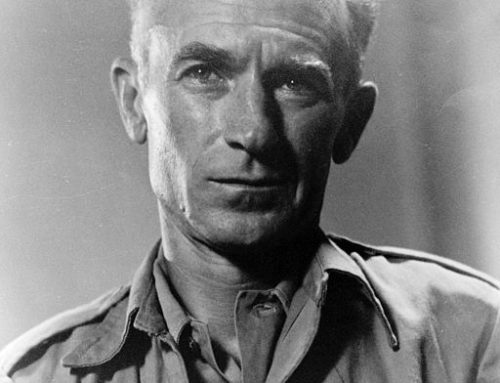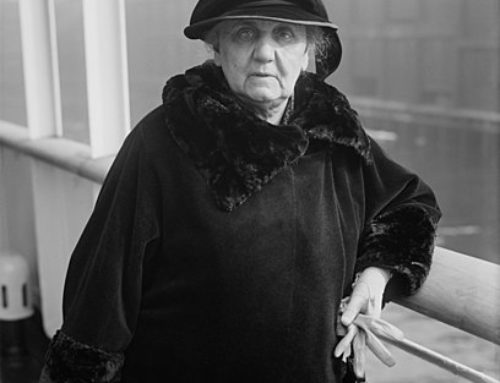Justice Black during his long career on the Supreme Court, some 34 years, displayed a lifelong reverence for the Constitution. Perhaps no other man in the history of the Court so revered the Constitution as a source of the free and good life. Few articulated so lucidly, simply and forcefully, a philosophy of this eighteenth century document. He said, “ I believe that our Constitution with its absolute guarantee of individual’s rights, is the best hope for the aspirations of freedom which men share everywhere.” He felt that the 14th Amendment forbade states from taking “life, liberty, or property” without due process of law applied as well to state action.
During his long tenure on the Court, Justice Black was an outspoken advocate for the application of the first eight amendments of the Bill of Rights to be applied both on the National and State level. The Bill of Rights was his holy writ, a set of absolutes erected by the framers to shield and nurture individual freedom. Neither the Federal Government nor a state could pass a law that collided with the Bill of Rights. By the end of his career, the Court applied most of the Bill of Rights provisions to the states.
Ironically, his membership in the Ku Klux Klan, 1923-1925, raised major concerns among civil rights groups after his nomination to the Court in 1937. In an interview given to the New York Times in 1967, Mr. Black defended his membership in the Klan. “ There were a few extremists in it, but most of the people were the cream of Birmingham’s middle class. It was a fraternal organization really. It was not anti-Catholic, anti-Jewish or anti-Negro.” He claimed his main reason was for business because in prosecuting the corporations, he found that many of their lawyers were members of the Klan. Also the jurors were members of the Klan. Thus, he wanted to even up his chance with the juries.
Mr. Black said in defense of freedom of speech “My view is, without deviation, without any ifs, buts, … that freedom of speech means that you shall not do something to people whether for the views they have or the views they express or the words they speak or write.”
Mr. Black was a Southern liberal, his views rooted in the Populist-Progressive credo. A staunch New Dealer, Mr. Black supported Roosevelt’s innovative and ambitious legislation to life the nation out of the Depression. His father, who was a Confederate veteran, was a poor farmer.
Mr. Black strongly believed that the Courts could not wantonly interfere with the power of the legislature to enact child-labor laws, minimum wage laws and other legislation to help the poor.
While Mr. Black defended freedom of speech, he did not feel that not group, however, just their cause, had the constitutional right to demonstrate in a public place. “The First Amendment protects speech.. But it does not have anything that protects a man’s right to walk around and around.my house, if he wants to; make them afraid to go outdoors.
The biggest shock to liberals was his opinion upholding he evacuation of Japanese-Americans from the West Coast in World War II. Mr. Black defended his decision by stating that if the Japanese had invaded the United States, the Japanese in the West Coast could have been shot in the panic.
Mr. Black retained his country-boy element and loved to tell stories when lunching at the basement cafeteria in the Supreme Court Building. He told his listeners that once he was eating at the 21 Club in New York and his host tried to give the hatcheck girl a dollar to retrieve his hat. He stopped his host and told him “ I resent that. My wife’s been trying to get me throw out that old fedora for 15 years now, and nobody’s going to pay to get it back. Give the dollar to me.”
Mr. Black given his first hand experience investigating police brutality in his native Alabama was consistently against confession system of justice. He was very proud of his decision in the case of Court in Chambers v. Florida, a highly publicized murder case in which four Negro tenant farmers were convicted on confessions extracted after six days of nonstop questioning. In reversing their conviction he wrote “ Under our constitutional system, courts stand against any winds that blow, as havens of refuge for those who might otherwise suffer because they are helpless, weak, or…. because they are nonconforming victims of prejudice and public excitement.
Mr. Black, a Liberal member of the Senate was appointed to fill the seat of retiring Willis Van Devanter, of the so-called “Four horsemen of reaction.” Mr. Black had an abiding belief that the framers of the Constitution had created a balance under which the country could grow economically while preserving the basic individual freedoms. For the Court, then, to strike down legislation that violated individual freedoms was a “sacred trust,” more important than intruding on the rightful economic and social provinces of legislators.



